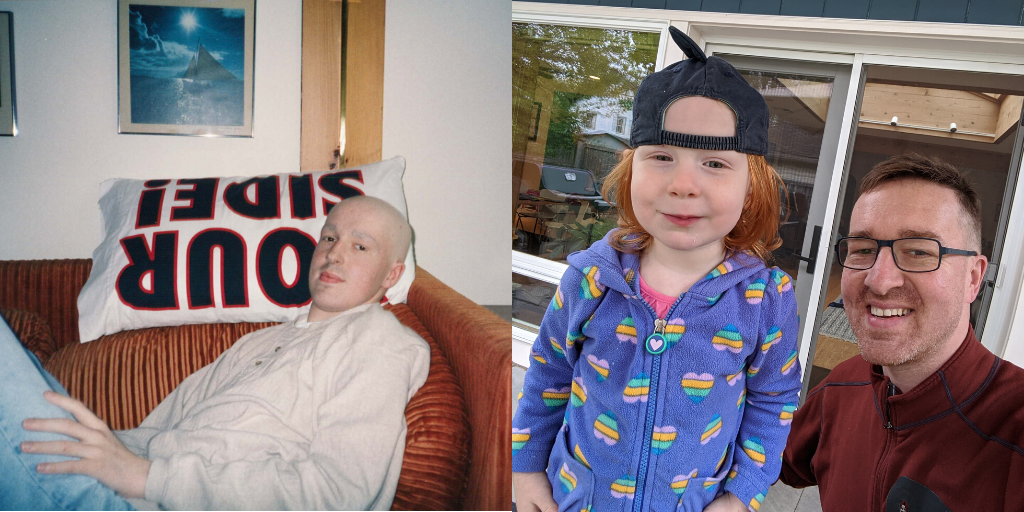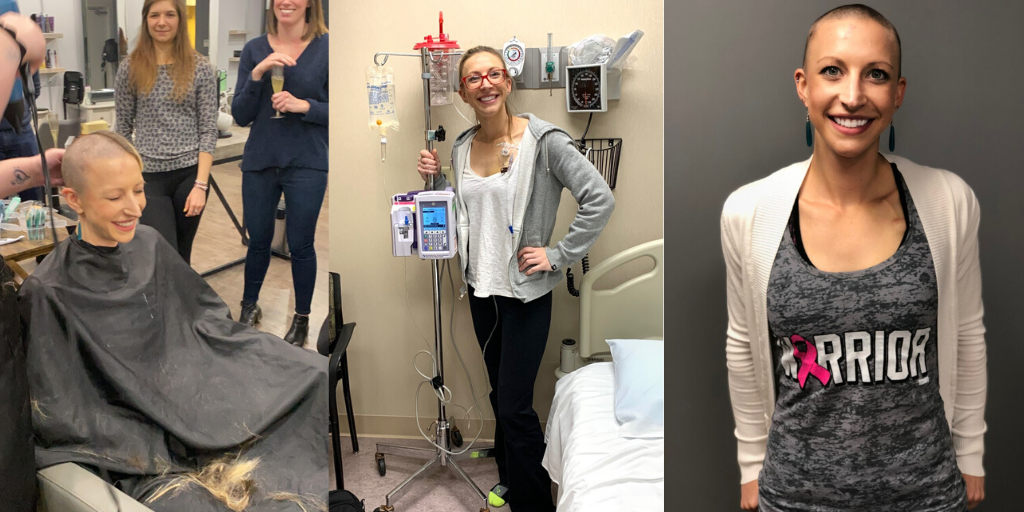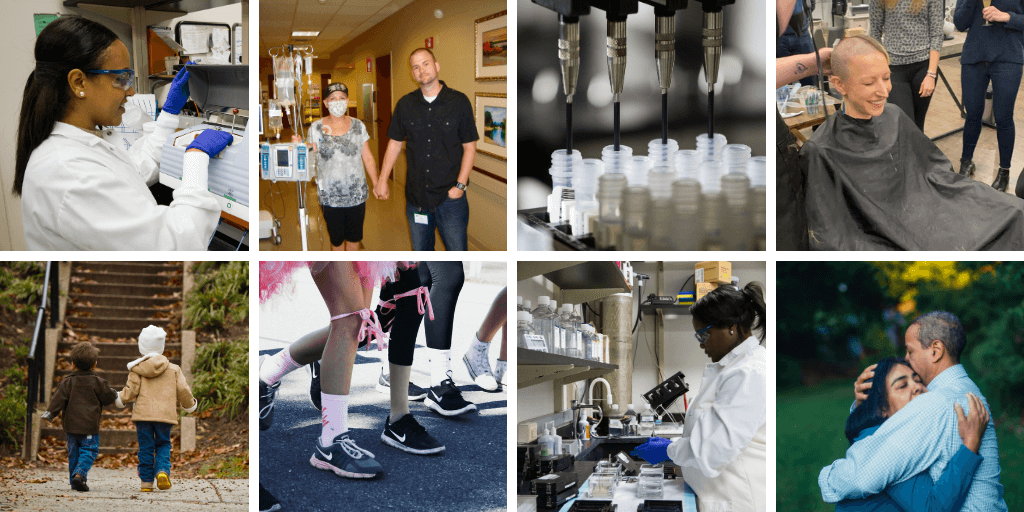While the University of Illinois at Urbana-Champaign slogan, “Fighting Illini,” is most commonly used to describe the university’s athletics, it’s taken on a whole new meaning within the laboratories of the Cancer Center at Illinois (CCIL).
Having battled cancer themselves, several CCIL researchers have deeply personal connections to the subject they study and truly are, “Fighting Illini, Fighting Cancer.” To honor the thousands of individuals who have battled the disease, CCIL scientists are sharing their stories.
Brendan Harley, CCIL Cancer Discovery Platforms Research Program Leader
Brendan Harley was diagnosed with acute myelogenous leukemia when he was 17 years old. Though he’s been in remission for 25 years, he’s still fighting cancer through his work as a Professor of Chemical and Biomolecular Engineering and a Research Program Leader at the CCIL.

Brendan’s lab is developing new ways to engineer biomaterials such as bone marrow and tissues. His team is researching to improve outcomes for cancer patients diagnosed with glioblastoma multiforme (GBM) – an aggressive brain cancer. By re-creating tumor environments, they can examine and better understand GBM and gain a better understanding of how patients respond to cancer therapies.
“Through research, we are changing the way we understand the onset and growth of cancer, and fundamentally shifting how we treat it. The impact will be felt for generations ahead, “ Brendan said.
Catherine Applegate, CCIL Graduate Student
Catherine was recently diagnosed with breast cancer while completing her PhD in Nutritional Sciences as a graduate student in the CCIL’s Tissue Microenvironment (TiMe) Program.

As a cancer researcher, Catherine explores the role that food and nutrition play in impacting cancer diagnoses. Her dedication to her profession has led her to join the Cancer Research Advocacy Group (CRAG) and the CCIL’s Ambassadors Program, comprised of volunteer students who raise awareness about cancer research.
“Cancer is a complex and (not to be taken the wrong way) fascinating disease with so many different factors that have different effects and are always changing. It seems like it’s always been personal for me without having a reason why – now I know,” Catherine said.
— Edited by the CCIL Communications Team

